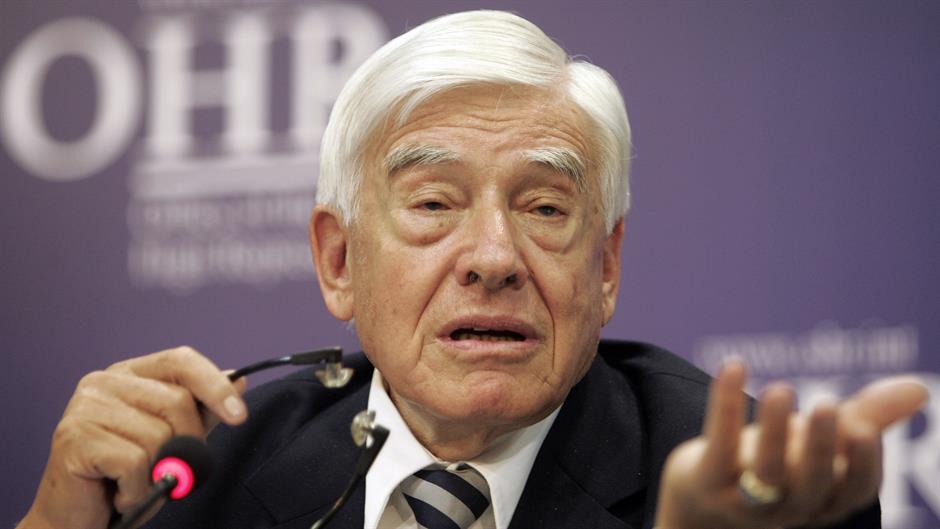
The Dayton Peace Agreement has turned Bosnia and Herzegovina into a country that is impossible to govern and the country needs help from the international community to change that, said Bosnia's former international administrator, Christian Schwarz-Schilling, at a ceremony that marked the 25th anniversary of the signing of the agreement.
Schwarz-Schilling served as the High Representative in Bosnia, tasked with overseeing the civilian implementation of the 1995 Dayton Peace Agreement, between 2006 and 2007.
“A very complicated state structure, with several levels of government, was intended 25 years ago to safeguard the interests of the three largest ethnic groups in the country. In practice, however, Bosnia is stuck on a dead-end road. Ownership (policy) doesn’t work and the international community is not taking the necessary steps,” he said in a video message presented on Saturday during the ceremony at the Sarajevo City Hall.
The agreement needs to be changed as it was never meant to be a permanent solution but just a step toward the creation of a functioning country, he explained.
"However, this has proven to be impossible,” he said, adding that not one proposal for constitutional changes has reached the country’s parliament since 2006 because the leaders of the three major ethnic groups cannot reach an agreement.
Many citizens from Bosnia's Federation (FBiH) entity are seeking international help to change amend the agreement but any mention of this in the other semi-autonomous entity, Republika Srpska (RS), is usually met with resistance. Bosnian Serb leaders are scared of this idea because Republika Srpska was recognized in Dayton as a political entity, he argued, adding that "under no circumstances do they want to risk its (Republika Srpska's) existence being called into question."
The former High Representative said that Brussels and Berlin are closely following developments in the country and noted that German legal expert Reinhard Priebe said in his report, which was published last year, that Bosnia’s judiciary must be reformed.
However, this can be done only if the country’s Constitution is changed and to do that, Bosnia needs international support, he stressed.
“Bosnia needs a new policy,” in which the international community would play a more impactful role in the efforts to change the Dayton peace agreement, he said, adding that "Bosnia cannot do it alone. It is obvious it needs help."
"We, the international community, owe Bosnia and Herzegovina to do this, to help to change Dayton, to help more than in the last 15 years," he said, noting that the instruments to do this are all there and they only need to be used.
Kakvo je tvoje mišljenje o ovome?
Učestvuj u diskusiji ili pročitaj komentare





 Srbija
Srbija
 Hrvatska
Hrvatska
 Slovenija
Slovenija







